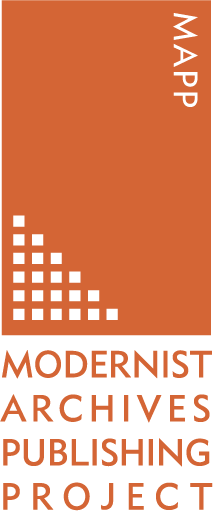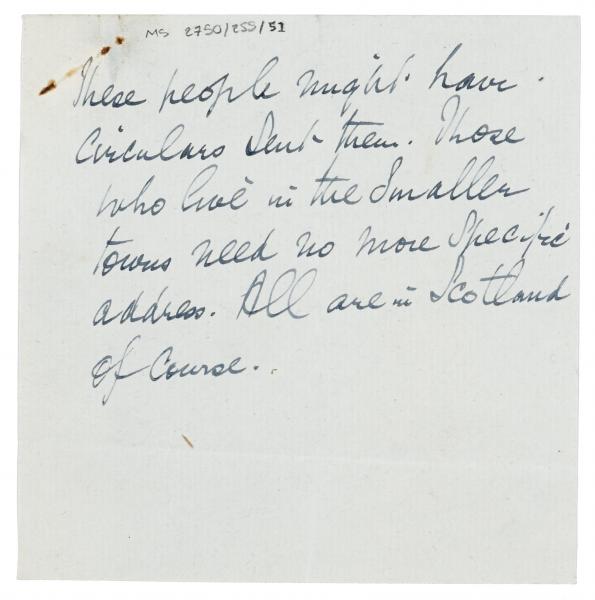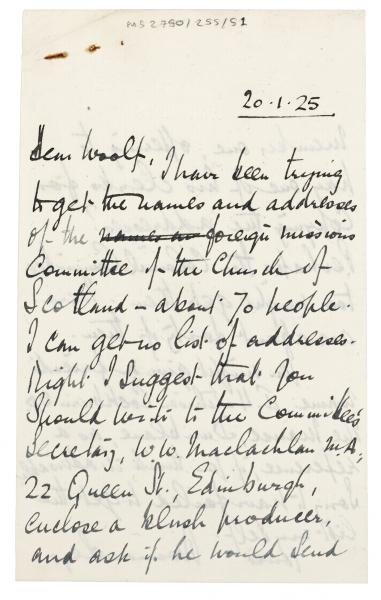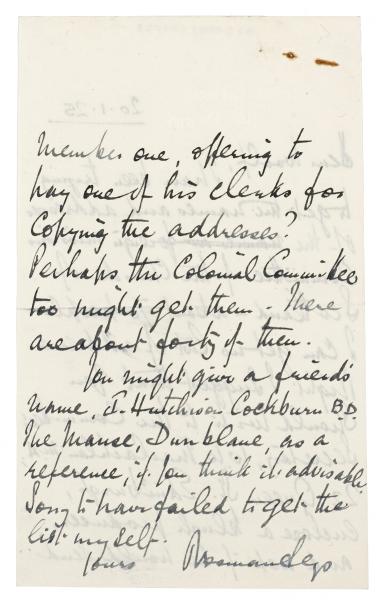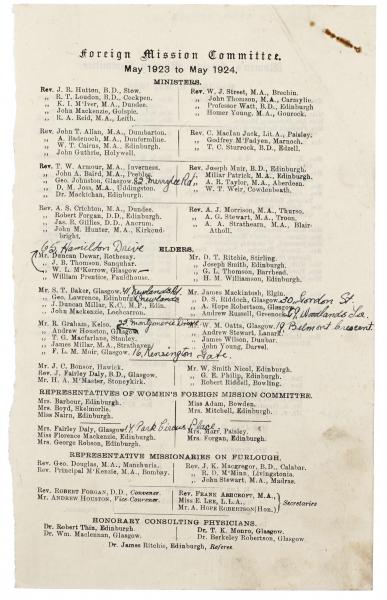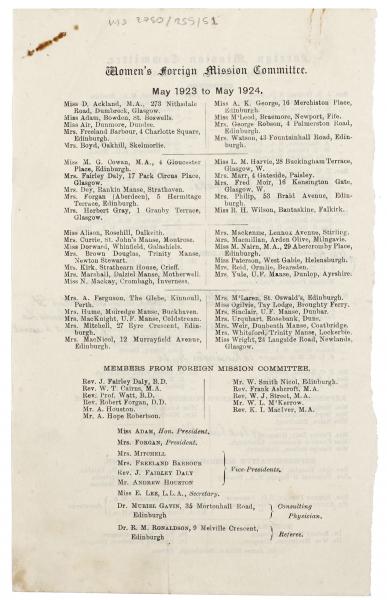[[1]]
[[MS 2750/255/51]]
These people might have circulars sent them. Those who live in the smaller towns need no more specific address. All are in Scotland of course.
[[2]]
20.1.25
Dear Woolf,
I have been trying to get the names and addresses of the [2 illeg. words deleted] foreign missions Committee of the Church of Scotland - about 70 people. I can get no list of addresses. Might I suggest that you should write to the Committee's Secretary, W.W. Maclachlan M.A., 22 Queen St., Edinburgh, enclose a [1 word illeg.] producer, and ask if he would send
[[3]]
member [sic] one, offering to pay one of his clerks for copying the addresses? Perhaps the Colonial Committee too might get them - there are about forty of them.
You might give a friend's name, J. Hutchison Cockburn B.D. The Manse, Dunblane, as a reference, if you think it advisable. Sorry to have failed to get the list myself.
Yours | Norma Leys [signature]
